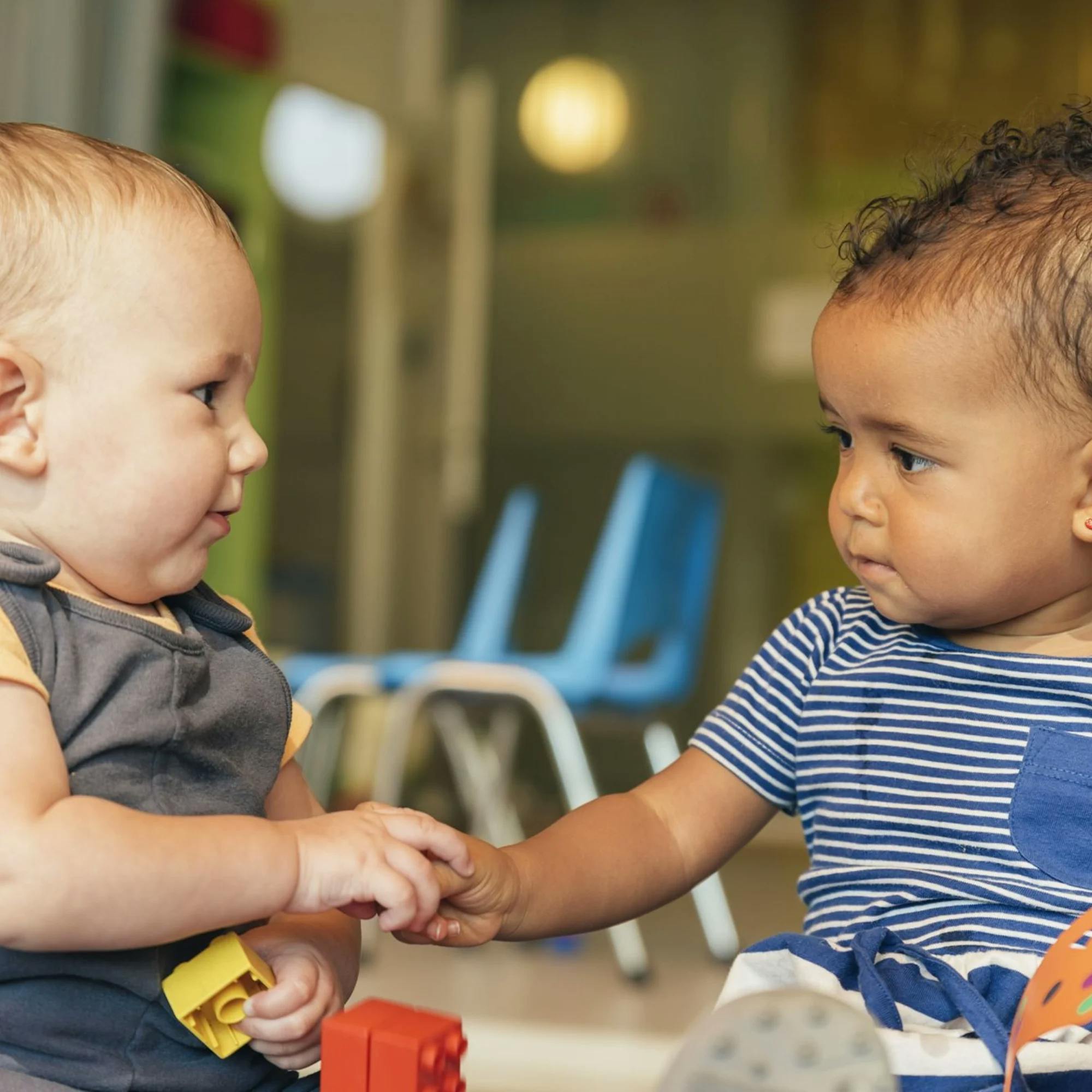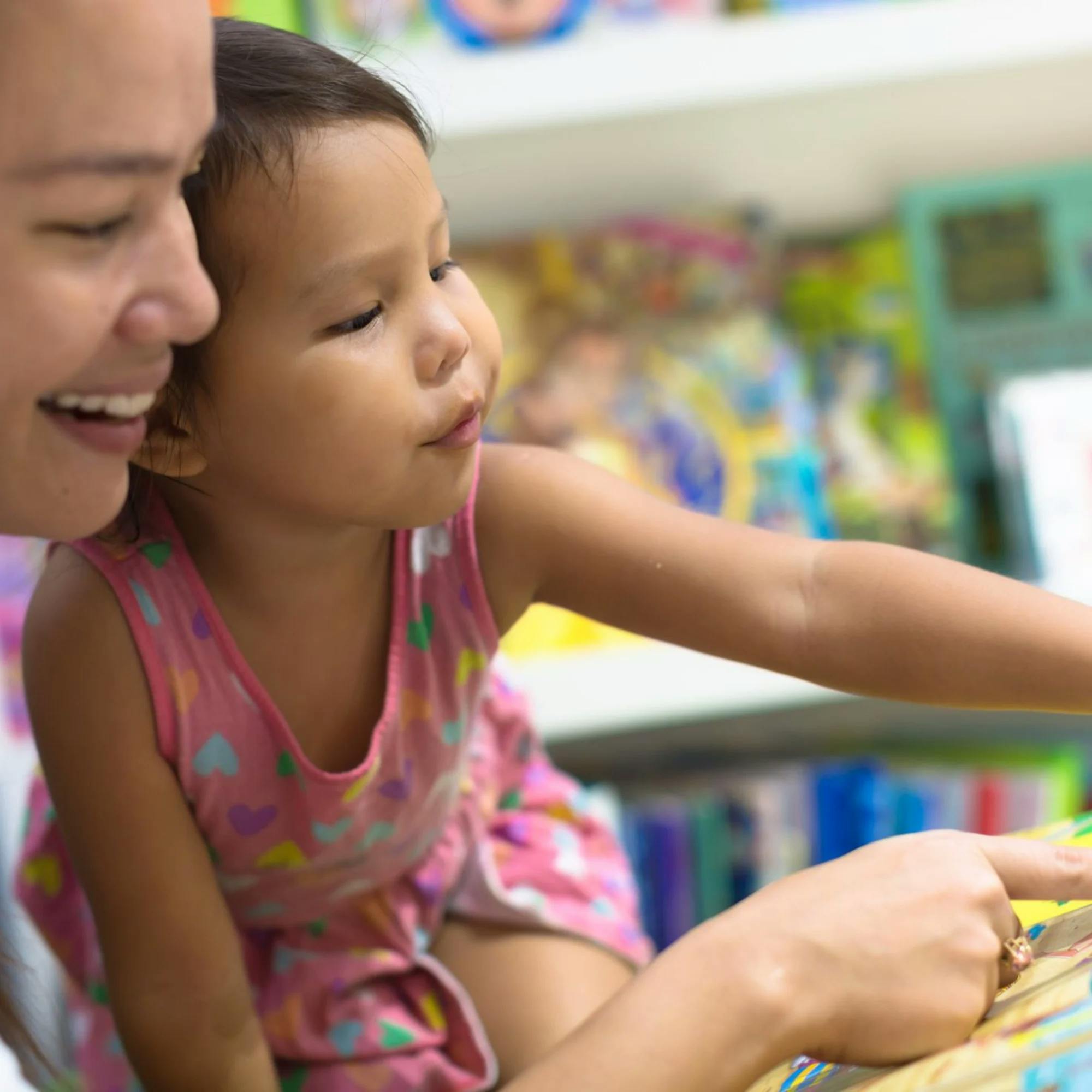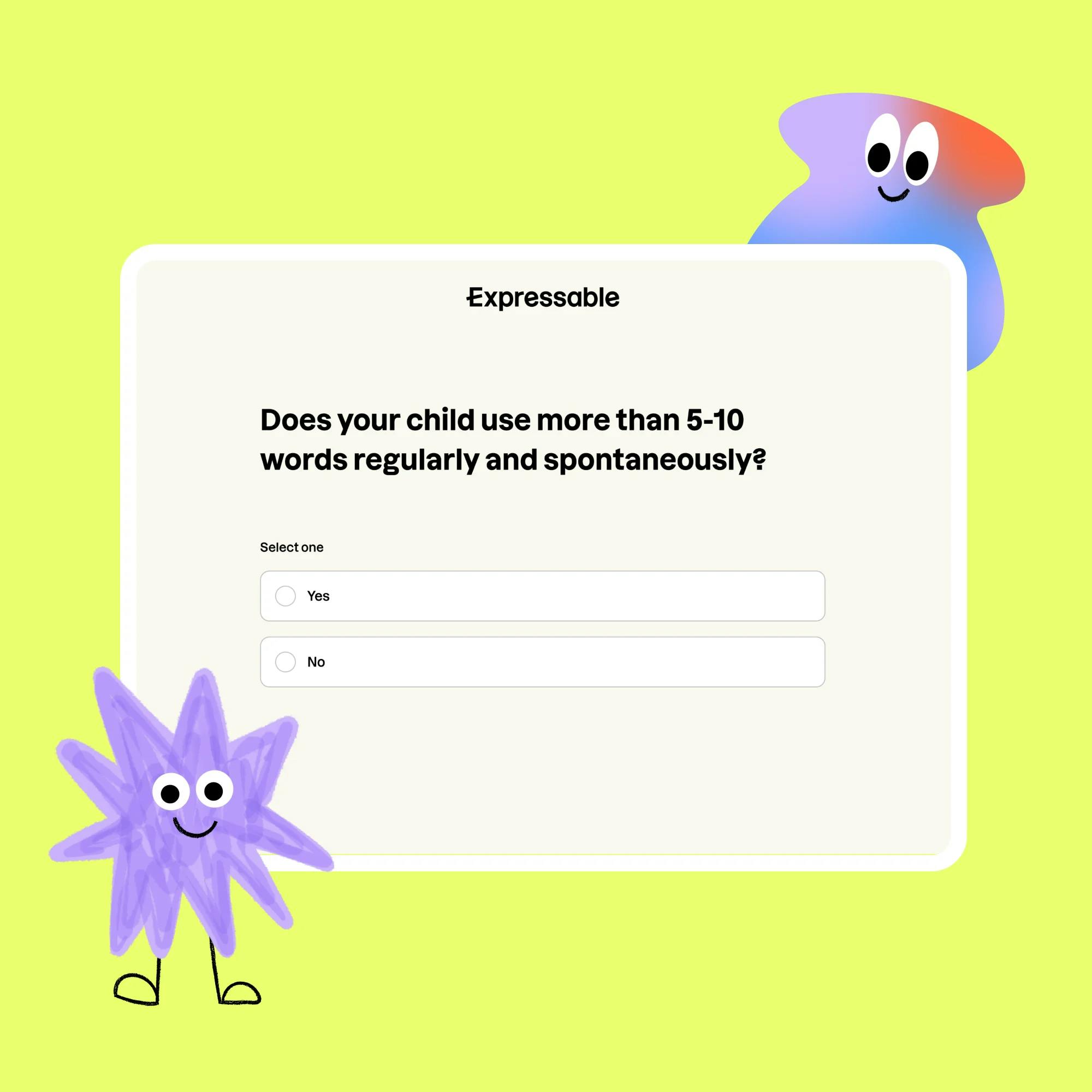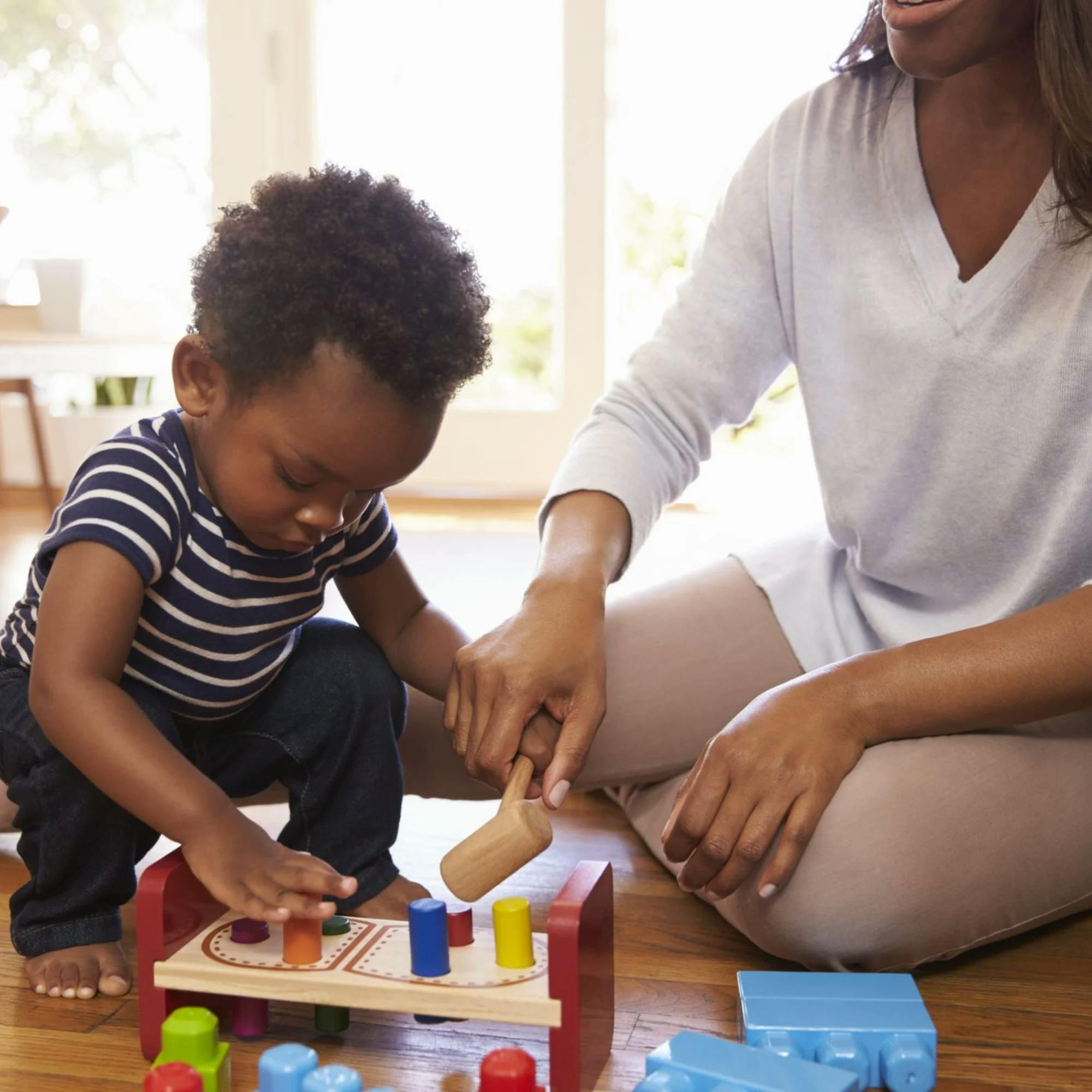
What Are the Benefits of Speech Therapy for Toddlers?
 Leanne Sherred, M.S., CCC-SLP
Leanne Sherred, M.S., CCC-SLP
Some parents may wonder if speech therapy is "worth it" for toddlers. There are many reasons why infants and toddlers, even starting as early as 3 months old, can benefit from speech therapy.
Language development starts in early childhood, way before a child begins producing their first words. Crying, babbling, pointing, and gesturing are all forms of early language acquisition, and they are a child’s first attempts to communicate their thoughts, feelings, and desires.
Children who are nonverbal must still be able to effectively communicate. Not only is this important as they begin to understand the world around them, but it helps set the foundation for speech production, relationship building, social awareness, and literacy skills like reading and writing.


How speech therapy can improve a toddler’s communication, beyond speech
When we think of speech therapy, the first thing that comes to mind is often verbal communication, such as speaking or pronouncing sounds correctly. However, speech therapy is actually far more encompassing, and includes language comprehension, social skills, and all aspects of oral and written communication.
Speech therapy can improve a range of communication skills essential for babies and young children beyond just speech. These include:
Nonverbal communication Speech therapy can help infants and toddlers with the most basic forms of communication. This can include the use of gestures or facial expressions, as well as simple sounds to express their needs and wants even before they’re able to use words or full sentences. When young children struggle to communicate their thoughts, they may also be more prone to behavioral issues. By providing a strong foundation of language, speech therapy can help young children grow and thrive into effective communicators.


Social skills Social communication (also called pragmatics) refers to how children use language during social interactions. At this young age, children are beginning to form relationships and emotional connections. Unfortunately, social skills don’t come easy to all children, which can be tough once they enter school and begin socializing with peers.
Speech therapy focuses on social development through exercises such as matching emotions to facial expressions, identifying body language and social cues, teaching turn taking, practicing how to follow directions, interacting with people in a variety of different settings, and for older children, working on conversational skills.


Cognitive development Even before a child is born, until around age 5, their brains are rapidly developing. A child’s cognitive abilities impact so many aspects of their daily lives, including their working memory, reasoning and problem-solving skills, self-awareness, executive functioning, comprehension, motivation, and more. Strong language and communication skills are imperative to improving cognitive function and raising healthy, independent children.
Foundational literacy skills Reading, writing, and spelling are all language-based activities. As mentioned, a strong foundation in language is necessary to improve literacy skills and excel academically. More specifically, early language development helps children develop phonological awareness (the ability to isolate different sounds within a word), which they then use to map corresponding sounds onto printed words. This skill is critical to helping children become proficient readers, and is the building block for spelling, writing, and comprehension to ensure they understand what they read.


How do I know if my toddler needs speech therapy?
Not that we’ve established that the scope of speech therapy extends far beyond speaking, let’s focus on signs that your young child could benefit from intervention. It’s important to note that all children are different and follow their own developmental timeline. Just because your child isn’t displaying certain behaviors doesn't necessarily mean they won’t eventually catch up. However, if you do notice your child isn’t hitting milestones appropriate for their age, consider speaking with your doctor or seeking an evaluation from a certified speech therapist.
You can also take our easy online screener to learn whether an evaluation would be helpful for your toddler. You can discuss your results with one of our specialists for free.
0-12 month milestones
Not smiling or noticing others: Early in a child’s life, at around the 3-month mark, children begin taking notice of others around them. Your child should begin smiling or reacting when you’re speaking to them.
Making baby noises: The adorable baby giggles begin after a few months of life. This is when toddlers begin experimenting with their vocal chords and making a variety of different sounds. Even though they’re far from producing legible speech, they should be making sounds frequently throughout the day.


12-18 month milestones
First words: Around this age, it’s common that babies begin to say their first words. These words often start simple, like “mama” or “baba.”
12-24 month milestones
Simple phrases: Putting simple words together to produce coherent phrases is an important communication milestone. Don’t expect full and complete sentences at this age. However, your child should be able to provide a better indication of their needs. For example, they should say “I want” while pointing to the juice, or “more milk” if they’re still hungry.


24-36 month milestones
Pronouncing sounds and words: There are common sounds that are harder for children to master, such as the /ch/ or /l/ sound. However, around age 3 children should be able to coherently produce many sounds, and be intelligible at least 75% of the time to both familiar and unfamiliar listeners. Additionally, a child’s speech should be understood by people they frequently interact with, like family members or close friends.
Playing with others: Children at this age begin to frequently play and socialize with others their age. This is when their social skills really blossom, and we begin to see the development of other critical early language skills, like turn taking and following directions. While some children are naturally shy, this can often be overlooked as a child’s inability to comprehend others or make themselves understood.


Online speech therapy for toddlers
Not only do many toddlers and young children love online speech therapy, it can also help accelerate their progress toward meeting their communication milestones. Learn more about online speech therapy for toddlers and how well it works.













